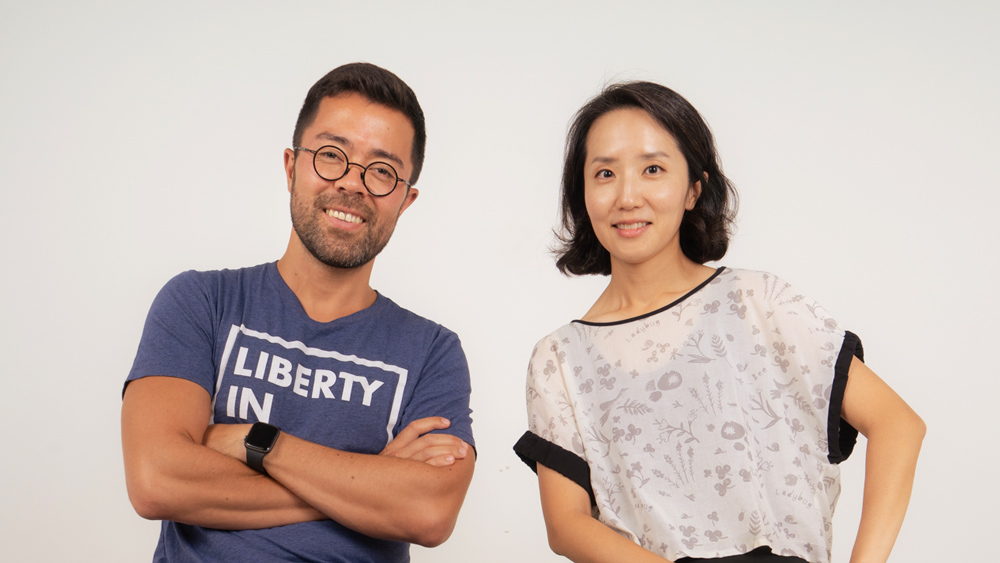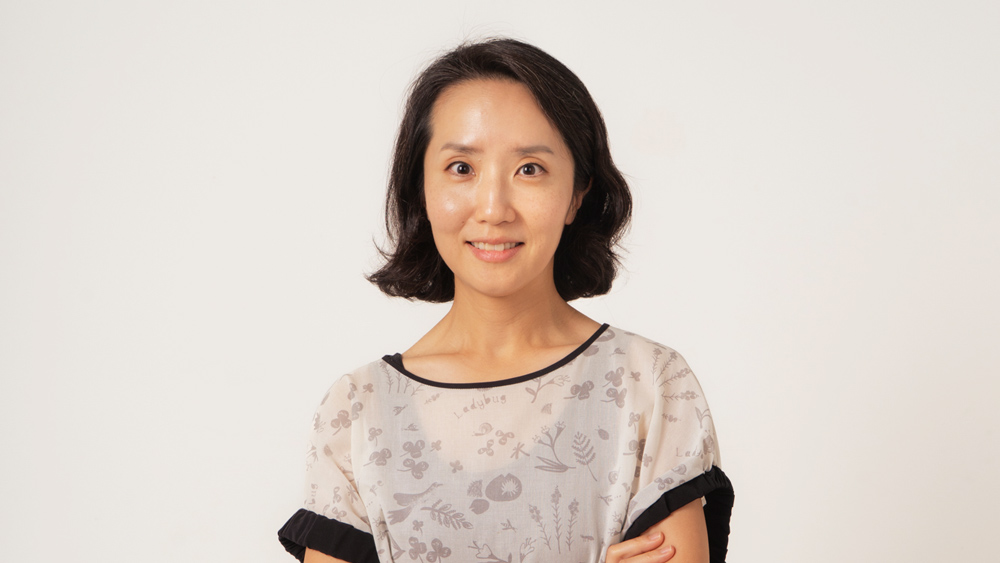Yoon Ha's Story: Part 1 - Life in North Korea

Yoon Ha resettled to South Korea through LiNK’s network about a year ago. She recently shared her story with us. This is part one of three. Continue to part two.
When I was asked, “How was your life in North Korea?” for the first time, I just started crying because my life there was so hard. It was so hard.
When I was a little kid my mom left me, my younger sister, and my dad, because of our financial struggles. I felt so abandoned and unloved.
And even though I was young, I had to start working to contribute to my family’s finances. My sister and I would forage for plants in the mountains and riversides. We carried the herbs, roots, and pinecones on our backs, walking for three hours to get to the marketplace. We sold our stuff so we could get corn powder to eat. And then we would walk the three hours back to our house. It was very, very hard.
In my late teens my father passed away. I was devastated. After a few years of living with relatives, my sister and I moved back to live with our mom again. But we were still very poor. People would make fun of us for being so poor and not having a father around. I felt a lot of shame about my family and living situation.
When I was 22, my mom asked me to start living with a man much older than me to lessen the financial burden on my family. I didn’t like living with him at all.
I decided to leave my hometown to find a better life somewhere else. I walked for a few days to get to Hamhung, one of the biggest cities in North Korea, hoping I could find work there.

In the city, I did a lot of things to make money. I would sell gas lighters and secondhand vinyl. I had to do it secretly because it was illegal. And it never paid well--just enough to buy food. I was staying at homes, cheap inns, empty houses, and even sleeping on the streets and next to graves when I had to. Sometimes I got beaten by people from the city because they didn’t like that I was making money but wasn’t from there.
I worked there for many months, but I couldn’t save any money so I decided to go back to my mom’s place. My mom and my sister were still struggling, and having me back was a burden to them. So I left home again and walked to Pyongyang to find work. In North Korea you need a special permit to move to different cities, and I didn’t have one. I got caught and sent to jail for 10 days.
After I was released, I started walking to other cities again to find work. I knew I might get caught by the police again, but I couldn’t go home. I walked a lot. Walking was the only way I could travel to where I needed to go.
I made it to another town and found work crushing ore to extract gold. The work was illegal and we would do it secretly in people’s houses. In one of these houses, I got beat up and got kicked out. I didn’t do anything wrong; they just didn’t want to pay me. Even after that incident I continued to do the same work in other houses. For the first time in my life, I had made a decent amount of money--enough to buy 100 kg of corn.
I was so happy. I would be able to bring some money to my mom and sister so we could eat food for a while. I also missed my family, so I started heading home.

At a bus station on the way home, a woman and her daughters asked me to get water for them. They stole all of my money and ran away.
I couldn’t handle all the bad things that kept happening to me. It felt like my life was hopeless and pathetic. I went to a river near the bus station to commit suicide. But right when I was about to jump into the river, all of sudden a thought came over me.
“Why do I have to die? Why? I've not done anything wrong. I'm still only in my early 20s.” I made the decision to live and make the better life I wanted.
Instead of going home, I started walking again. I just kept going north. Even though I was so hungry, the hope for a better life drove me to keep walking.
After walking for days, I somehow arrived in Hyesan, a city on the border with China. I saw many people like me, who had been wandering around in search of food and work. I had travelled to many different parts of North Korea, and came to the conclusion that life was difficult everywhere in my country.
A couple in their 30s or 40s approached me and asked how old I was. I told them my age, 23. They asked if I wanted to go to China. They said I could have a better life there.
“A better life? Yeah, I would do anything to have a better life.”
So I decided to go to China with them. I was so focused on having a better life; I didn’t ask many questions. A few days later, in the darkness of night, we crossed the river into China.
Continue reading with part two.
At the Forefront of North Korean Human Rights Work | LiNK Organizational Update
Liberty in North Korea welcomes Sarah Yun as our new Chief Regional Officer (CRO), South Korea, as our previous South Korea Country Director, Sokeel Park, transitions into a new role as our Chief Strategy Officer (CSO). Sarah and Sokeel will collaboratively lead LiNK’s South Korea operations while growing LiNK’s impact through their respective areas of expertise.

Over a Decade of Dedication to Human Rights
Sarah Yun brings a wealth of experience and expertise from her work to advance human rights in North Korea and across Asia during the past 15 years. She most recently served as the Country Director of Korea and Cambodia at the National Democratic Institute (NDI), managing the Institute’s operations and programs in the two countries.
Previously, Sarah was a Senior Manager for Asia at the National Endowment for Democracy (NED), overseeing the Cambodia, Vietnam, North Korea, Thailand, and the Philippines programs and teams. Prior to her experience at the NED, she worked at the Center for International Private Enterprise where she managed the Cambodia and North Korea programs, in addition to the Papua New Guinea program and field office.
“I have had the opportunity to work on issues related to various countries in Asia at a variety of institutions throughout my career, but my greatest passion has always been to envision a North Korea where its people can choose their own future. I am deeply inspired by the stories and resilience of the North Korean people and am committed to supporting their leadership and efforts toward a better future.”
– Sarah Yun, LiNK CRO

Sarah holds a BA in Political Science and Business Institutions from Northwestern University and MA in International Relations and International Economics from Johns Hopkins University School of Advanced International Studies. Her journey with LiNK began in college, when she came across her campus LiNK Team.
“I first learned about LiNK during my college years, when chapters began to emerge across the United States. Since then, I have respected the organization’s mission and work. When I was given the opportunity to work at LiNK, I had great anticipation and excitement at the thought of joining and supporting North Koreans' journey toward a free and open future. Together with the LiNK team, I hope to contribute to amplifying the leadership and voices of young North Korean defectors in creative and impactful ways.”
– Sarah Yun, LiNK CRO
A Strategic Shift
As LiNK continues to expand and refocus our programs in response to the evolving needs of this issue, there was a timely opportunity to bring on Sarah and diversify the organization’s impact.
As CRO, Sarah Yun will lead LiNK’s South Korea team, oversee our Capacity Building Programs, and represent the organization in South Korea. Sokeel Park will jointly represent LiNK alongside Sarah and maintain key collaborative efforts with external stakeholders. As CSO, Sokeel’s scope will also encompass the development of the organization’s broader strategy and Information Access Programs (IAP). Moving forward, IAP is an area of work which we are expanding as a crucial way to support North Koreans driving change inside the country, and achieve our vision.
North Korean refugees consistently tell us that getting more outside information into North Korea is crucial for empowering North Koreans to change their country. The importance of this area of work has only increased in recent years, so it is vital that we are able to increase the resources and time we are investing into these strategies. I’m extremely grateful to our donors for joining with us and making this expansion and these initiatives possible.”
– Sokeel Park, LiNK CSO
This is a challenging time for North Korean people, refugees, and the issue. We are grateful to Sarah for bringing her experience and expertise to LiNK and everyone whose support sustains our organization and enables us to grow.
We look forward to increasing our impact with Sarah’s leadership and sharing updates about our progress with our supporters.




